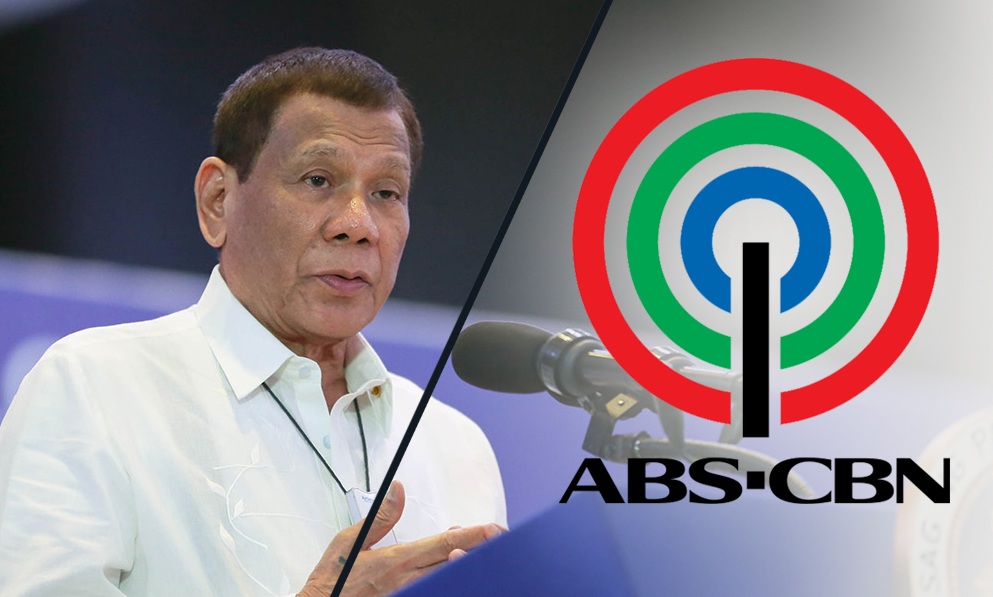
Human Rights Watch (HRW) led the barrage of condemnations of the Duterte government’s court petition to void the franchise of television network ABS-CBN.
The petition for quo warranto accuses ABS-CBN of skirting the ban on foreign ownership of mass media and illegally operating a digital for-pay channel and a subsidiary for mobile and digital TV platforms, which the publicly listed company denies.
On Monday, shares in ABS-CBN fell 1.76 percent to 16.70 apiece following news of the quo warranto petition filed by Solicitor General Jose Calida, who campaigned for President Rodrigo Duterte in the 2016 election.
HRW, in a statement, said the Philippine Congress should thwart the Duterte government’s “misuse” of regulatory powers, adding that Calida’s action could prevent the renewal of ABS-CBN’s 25-year franchise, which expires on March 30.
“Philippine legislators have a responsibility to uphold media freedom and resist administration efforts to pressure news outlets to toe the government’s line,” said HRW Philippine researcher Carlos Conde. “President Duterte’s administration should cease its politically motivated legal actions against the network.”
HRW also pointed out that the Philippines’s license renewal process allowed Congress to put “inappropriate pressure” on broadcast networks.
“The administration’s attempt to cancel ABS-CBN’s franchise or deny its extension is not just an attack on a single network, but an all-out assault on media freedom,” Conde said. “Complaints against broadcasters should be addressed in the proper forum, such as the National Telecommunications Commission.”
The Foreign Correspondents Association of the Philippines (Focap) denounced the government’s move, citing ABS-CBN as a “cornerstone of Philippine democracy and the free press for its independent and critical reportage and massive following in the country and abroad.”
“The constitutional violation and other legal infractions raised by the Solicitor General in his Quo Warranto petition before the Supreme Court have been denied by ABS-CBN and questioned by some members of the legislature, which has exclusive rights to grant such franchises,” Focap said.
“These moves politically harass and threaten a pillar of the media industry that employs thousands of Filipinos and has played a crucial part in helping fight official corruption and abuse for decades.”
“We call on Congress to act independently. We call on our Supreme Court Justices to side with the people’s right to truthful and independent news, the Constitution and democracy. We call on our media colleagues to close ranks in this perilous time,” Focap said.
The University of the Philippines College of Mass Communication said Calida’s action was “another blatant attack on the freedom of the press.”
“In filing a ‘quo warranto’ against ABS-CBN, the current Administration demonstrates the lengths that they will go to silence critical media voices,” it said in a statement.
“It has been 34 years since we won back our right to information and a free press through the 1986 EDSA Revolution. However, government actions such as these show us the volatility of this hard-won freedom, the need to remain vigilant so as to not allow history to repeat itself,” it said.
“As we have seen in the recent past, multiple tactics have been used to attack the media—from the legal harassment of ABS-CBN and Rappler to the use of spurious data and fake news against media institutions like VERA Files and the Philippine Center for Investigative Journalism.”
Opposition senator Francis Pangilinan chided the Duterte government for getting back at critics amid the outbreak of the novel coronavirus.
Another opposition lawmaker, Risa Hontiveros, argued that a quo warranto petition wouldn’t succeed.
“The provision attacks a corporation that was not legally incorporated. ABS-CBN, is, of course, legally-incorporated,” she said.
“I see the Solicitor-General’s quo warranto petition against ABS-CBN as an attack on the free press and a vindictive move against critical journalism,” she added.
The leader of the Senate minority, Franklin Drilon, cast doubt on Calida’s motivation, noting that the petition, which would require weeks, if not months, to resolve, would become useless when ABS-CBN’s franchise expired in March.
“If between now and March, Congress decides to hear the franchise renewal of ABS-CBN — all these issues raised by SolGen Calida in his quo warranto petition can be taken up during the hearing,” Drilon said. (Felipe F. Salvosa II)